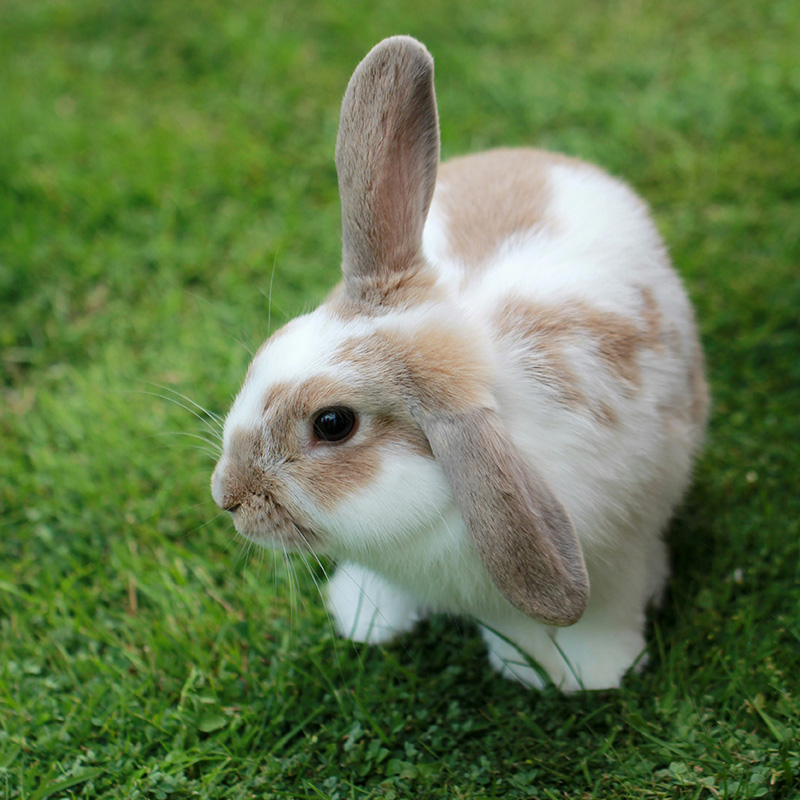Rabbit Awareness: Ensuring Your Bunny is Happy and Healthy
 As we approach International Rabbit Day on the 28th of September, it's the perfect time to turn our attention to our furry, long-eared companions. Rabbits are one of the most popular pets in the UK, and for good reason—they're affectionate, intelligent, and full of personality. However, keeping a rabbit happy and healthy requires more than just a hutch and some hay. This blog will guide you through the essential aspects of rabbit care, helping you ensure that your bunny is living its best life.
As we approach International Rabbit Day on the 28th of September, it's the perfect time to turn our attention to our furry, long-eared companions. Rabbits are one of the most popular pets in the UK, and for good reason—they're affectionate, intelligent, and full of personality. However, keeping a rabbit happy and healthy requires more than just a hutch and some hay. This blog will guide you through the essential aspects of rabbit care, helping you ensure that your bunny is living its best life.
Understanding Your Rabbit's Needs
Rabbits are social, curious creatures that thrive in environments where they can express their natural behaviours. In the wild, rabbits live in groups, dig burrows, and have a diet primarily made up of grass. Domesticated rabbits have retained these instincts, so it's important to provide an environment that caters to these needs.
Housing: Space to Hop and Play
One of the most common misconceptions about rabbits is that they can be kept in small cages or hutches. In reality, rabbits need plenty of space to move around. A hutch can serve as a secure sleeping area, but your rabbit will need a larger run or access to a safe, enclosed garden where they can hop, stretch, and play.
The RSPCA recommends that a rabbit's living area should be at least 3m x 2m x 1m, allowing enough space for them to display natural behaviours like running and standing upright on their hind legs. Additionally, ensure their space is weatherproof, predator-proof, and provides both shaded areas and shelter from the elements.
Companionship: The More, The Merrier
Rabbits are highly social animals, and they can become lonely and depressed if kept alone. Ideally, rabbits should be kept in pairs or small groups. A neutered male and female pair often works best, as they will bond and keep each other company. If you're considering getting a second rabbit, it's important to introduce them gradually and in neutral territory to avoid aggression.
If having more than one rabbit isn’t feasible, you'll need to spend plenty of time interacting with your rabbit every day. Toys, tunnels, and cardboard boxes can also help keep them entertained and mentally stimulated.
Diet: A Balanced, Natural Diet
A rabbit's diet is crucial to their health and wellbeing. The foundation of their diet should be high-quality hay, which provides the fibre necessary for a healthy digestive system and helps wear down their continually growing teeth. Fresh grass can also be offered if it’s available.
In addition to hay, your rabbit should have a small portion of fresh vegetables daily. Leafy greens like kale, romaine lettuce, and spinach are great choices, but be sure to introduce any new vegetables gradually to avoid upsetting their stomach. Avoid feeding your rabbit sugary fruits, root vegetables like carrots in large quantities, or any human food that isn’t specifically recommended for rabbits.
It's also important to provide a constant supply of fresh water. A heavy ceramic bowl is often better than a bottle, as it allows your rabbit to drink more naturally.
Health Checks: Keeping an Eye on Your Bunny
Regular health checks are essential to catch any potential issues early. Check your rabbit’s teeth weekly to ensure they’re not overgrown—this can lead to painful dental problems. Keep an eye on their weight, as both underweight and overweight rabbits are at risk of health complications.
Grooming is also crucial, especially during moulting periods when rabbits shed a lot of fur. Brushing your rabbit regularly helps prevent the ingestion of hair, which can lead to dangerous hairballs.
Vaccinations are another key aspect of rabbit care. In the UK, rabbits should be vaccinated against myxomatosis and both strains of Rabbit Viral Haemorrhagic Disease (RVHD1 and RVHD2). Speak to us at Broadway about the appropriate vaccination schedule for your rabbit.
Enrichment: A Happy Bunny is a Busy Bunny
Mental stimulation is just as important as physical health for rabbits. Providing toys, tunnels, and things to chew on can keep your rabbit engaged and prevent boredom. Rotate toys regularly to keep things interesting, and consider hiding small amounts of food around their living area to encourage foraging behaviour.
Spending time with your rabbit is also an excellent way to bond and provide enrichment. Training your rabbit to respond to their name or perform simple tricks can be a fun way to interact and stimulate their mind.
Conclusion
As International Rabbit Day approaches, it's a good reminder to reassess your rabbit's living conditions, diet, and overall health. By understanding their needs and providing a suitable environment, companionship, and regular care, you can ensure that your bunny remains happy and healthy throughout its life. Remember, a well-cared-for rabbit can live up to 10-12 years, making them a long-term commitment that can bring endless joy and companionship. If you have any concerns or questions about your rabbit’s wellbeing, don’t hesitate to contact us for advice or to schedule a check-up. Happy International Rabbit Day to you and your furry friends!
-
Previous
-
Next

